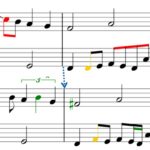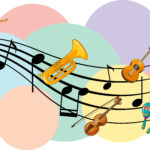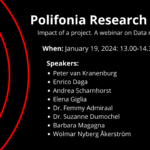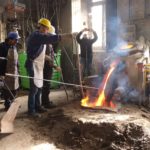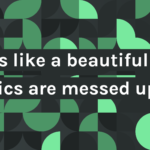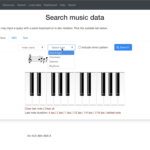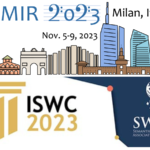Expert interview: Dr. Valentina Presutti, Polifonia coordinator
“Better knowing European (musical) heritage is crucial for strengthening the awareness of European citizens”, Dr. V. Presutti

‘Polifonia’ is a very interesting name for this project. Why did you choose it?
All partners were invited to submit a possible name and then we all voted. We had three proposals and Polifonia (the accent falls on the second “i”) collected the highest number of votes. It was my proposal, hence I am really happy it was well received. I like the sound of the word and its meaning is a very good metaphor for the project. Our visual system (logo, etc.) is inspired by it, too.
Why do you think Polifonia is important for Europe?
A huge part of European (musical) heritage is hidden, unknown or only orally transmitted. Understanding and knowing it better is crucial for strengthening the awareness of European citizens and visitors. It is also key to favor effective strategies for the economic and social valorisation of musical heritage and for its preservation. Polifonia will make all of this possible, this is why it is important.
What are the pilots/topics you are excited about?
Our work will be driven by ten pilots, and to me they are all exciting!
The pilot “Bells”, for example, is about preserving the knowledge of bell sounds. Many of us don’t even notice it, but bell towers are important elements of our landscapes. They define distinctive “soundscapes”, and mark daily and festive ritual times. The know-how of bell-ringers is at risk of being lost forever as these traditions are only transmitted orally. Preserving this knowledge is obviously valuable but it’s probably less obvious how much its loss would affect the design of our living contexts. This became very clear when, after the 2012 earthquake in Emilia Romagna, a multitude of restoration and repair projects on historic bell towers started. We want to create a databank of bell sounds connected to data describing the know-how of bell ringers and its relations to the physical world. It will be a vital resource for safeguarding policies, landscape planning and restoration design.
Polifonia is also about discovering influences and similarities between different styles and music traditions, over time and space. The pilot “Tunes” will investigate the connections between Dutch melodies from the 17th and 18th centuries with other European melodic repertoires, also considering the social, cultural and political contexts. It is very hard today to conduct this type of research: evidence is often discovered by accident or intuition because musicologists work mainly on distributed, disconnected catalogues. Polifonia will address this problem with the help of artificial intelligence techniques, making this type of study possible in a systematic way.
With similar technologies Polifonia will change the life of owners and managers of large catalogues, such as music publishers, cultural institutes, librarians, archivists, etc. The pilot “Facets” will build a faceted search engine for exploring music score collections based on features such as melodic, harmonic or rhythmic patterns, style, structure, and instrumentation.
We also have plans for revolutionizing the way we interact with music and to make this experience more inclusive. The pilot “Access” will build and evaluate wearable haptic devices to allow deaf or hearing impaired people to experience music and participate in live music performances.
Which musician/composer inspires you the most?
I am a music lover and there are so many artists that inspire and have influenced my life. When I was a young girl, I remember when I listened the first time to “Imagine” by John Lennon. It blew my mind and changed my perspective of the world for good. My inner nature is that of a rock person, though: I get energy from bands such as Deep Purple, Queen and Muse. I also love dancing, and Michael Jackson’s style has certainly influenced my aesthetic perception of movements, gestures and postures. My favorite artist ever is Prince: its music breaks the rules of “what you expect from a pop song” most of the time. It taught me that beauty is to be found or built by thinking out of the box. I learned to appreciate jazz and classical music when I was already an adult: the music by Keith Jarret and Debussy have been revelations to me.



